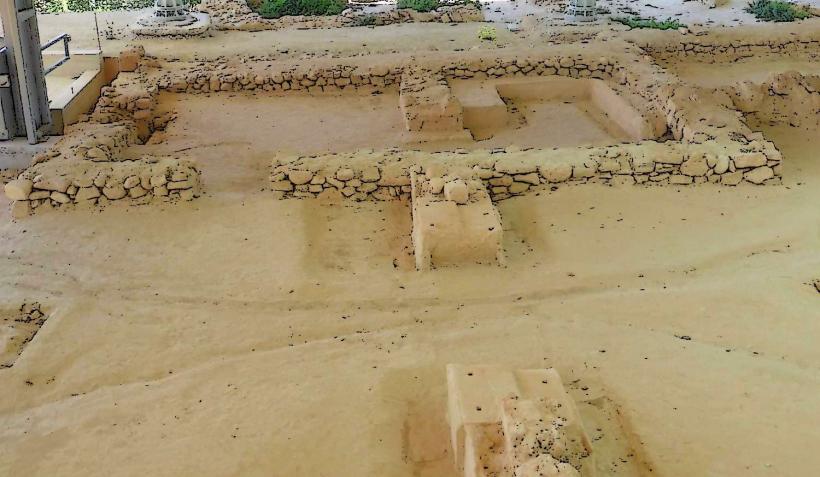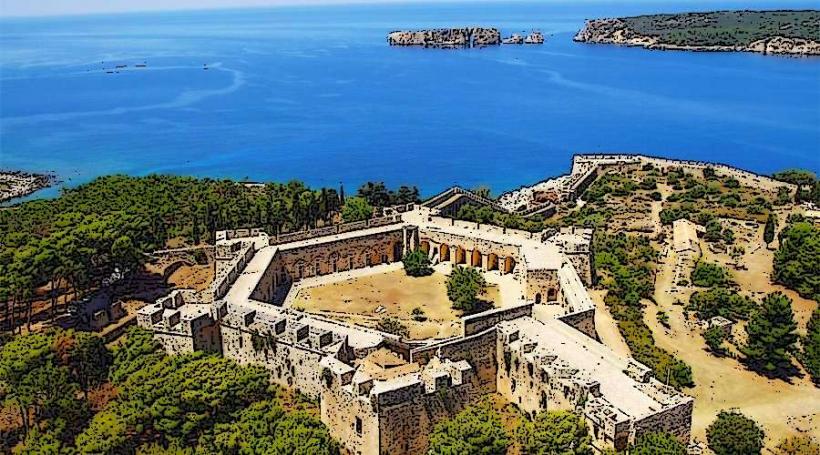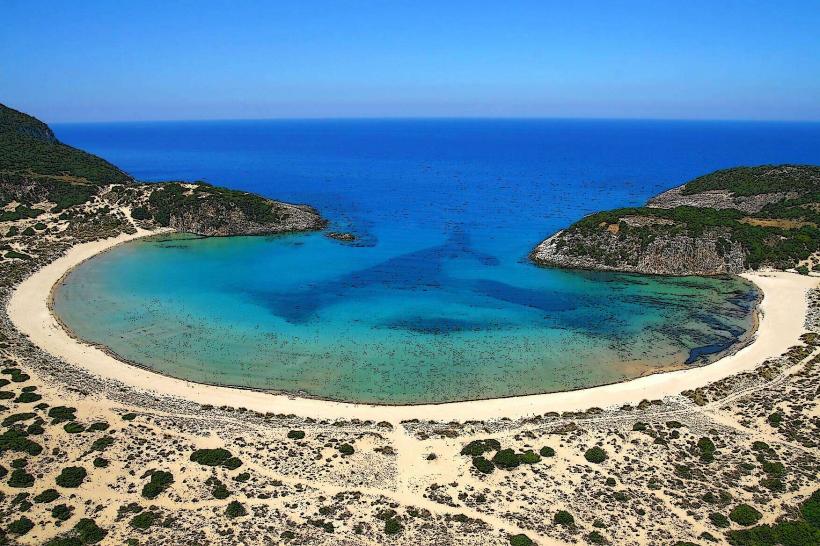Information
City: PylosCountry: Greece
Continent: Europe
Pylos, Greece, Europe
Pylos is a historic seaside town in the Messenia region of the southwestern Peloponnese. It is situated on the southern shore of the Bay of Navarino, a massive natural harbor protected by the long, narrow island of Sphacteria.
Historical Timeline
Bronze Age: Home to the Palace of Nestor, one of the most important administrative centers of the Mycenaean civilization (c. 1300 BC).
Peloponnesian War (425 BC): Site of the Battle of Pylos and the Battle of Sphacteria, where Athenian forces captured hundreds of Spartan hoplites.
Ottoman/Venetian Era: Known as Navarino. The town shifted between Venetian and Ottoman control, leading to the construction of two distinct fortresses (Old and New Navarino).
Greek War of Independence (1827): Site of the Battle of Navarino, the last major naval battle fought entirely with sailing ships. An allied fleet (Britain, France, Russia) destroyed the Ottoman-Egyptian fleet, securing Greek independence.
Urban Layout & Architecture
Three Admirals' Square: The heart of Pylos, a central square shaded by massive plane trees and surrounded by neoclassical buildings and arcades.
Neokastro (New Navarino): The primary fortress overlooking the town, built by the Ottomans in 1573. It is exceptionally well-preserved and contains a mosque converted into an Orthodox church.
Niokastro Neighborhood: Characterized by whitewashed houses and narrow streets rising amphitheatrically from the port.
Top Landmarks
Palace of Nestor: Located 17 km north of Pylos. It is the best-preserved Mycenaean palace in Greece, featuring the "Throne Room" and a prehistoric bathtub.
Paleokastro (Old Navarino): A 13th-century Frankish castle located on the northern tip of the bay, offering views of the Voidokilia cove.
Voidokilia Beach: A semicircular beach shaped like the Greek letter omega ($\Omega$), frequently ranked among the best in the world.
Sphacteria Island: Visible from the town; houses several monuments to the fallen sailors of the Battle of Navarino.
Gialova Lagoon: A protected wetland (Natura 2000) north of the bay, home to the only European population of African Chameleons.
Transportation & Infrastructure (2026)
Air: Kalamata International Airport (KLX) is 45 km away, serving as the main gateway with significant increases in international arrivals following the expansion of the Costa Navarino resort complex.
Road: Accessible via the A7 motorway to Kalamata and then the national road to Pylos.
Sea: The Port of Pylos serves private yachts and small cruise ships. It is one of the deepest natural harbors in the Mediterranean.
Digital: High-speed 5G is universal in the town center. The "Costa Navarino" area nearby serves as a high-tech hub for sustainable luxury tourism.
Safety & Environment
Safety: Pylos is highly safe with a low crime rate.
Environment: The Gialova Lagoon is a sensitive ecosystem. Motorized vehicles and camping are strictly prohibited in the dunes around Voidokilia.
Water: Tap water in Pylos is generally safe but can have a high mineral content; bottled water is standard for visitors.
Local Cost Index (2026)
1 Espresso (Freddo): €3.50–€4.80
1 Standard Lunch: €20.00–€35.00
1 Entry to Palace of Nestor: €6.00
1 Taxi (to Gialova): €10.00–€15.00
Facts & Legends
Legend says that Nestor, the King of Pylos, was the oldest and wisest of the Greek leaders at the Trojan War, frequently advising Agamemnon and Achilles. A verified historical fact: The Linear B tablets found at the Palace of Nestor provided the definitive proof that the Mycenaeans spoke an early form of the Greek language.




